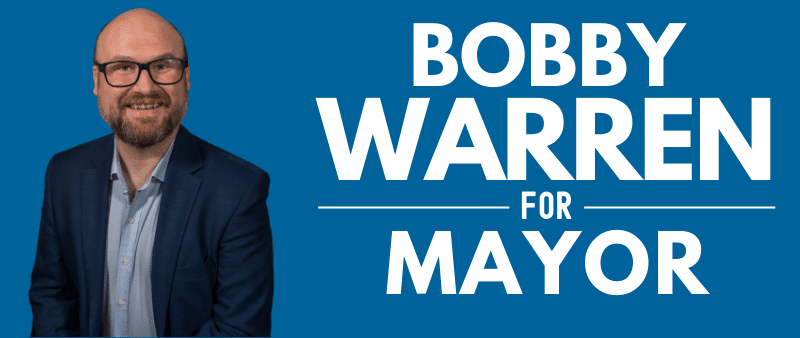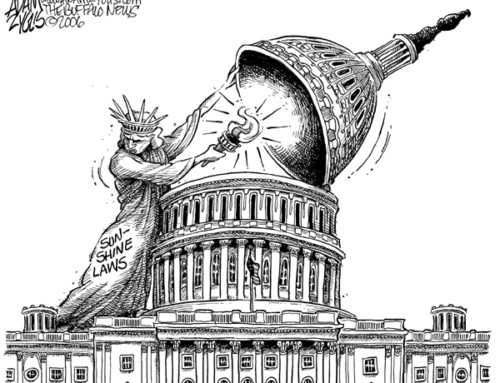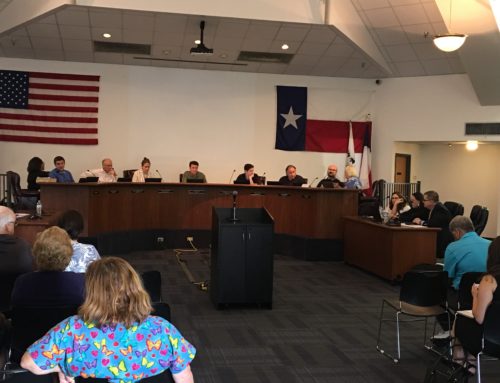On more than one occasion, I have been asked by citizens about the use of “executive sessions” by the Jersey Village City Council to discuss particular topics. These sessions occur behind closed doors and only city council and certain city staff or attorneys are allowed to attend. This may seem like a contradiction in a city like Jersey Village where we have made tremendous strides in opening up the actions of city council to more citizens through online video broadcasts, posting of city council meeting packets, and making more financial information available on the city website. A handful of people have even questioned whether such sessions are legally allowed.
Not only are executive sessions allowed under Texas law, they are an essential tool to protect the interests of the city and its citizens in very limited circumstances where confidentiality is key.
Why are government meetings generally open under Texas law?
The Texas Legislature passed the Texas Open Meetings Act in 1967. This law was designed to ensure that meetings of governmental bodies, such as school boards, city councils, and other public entities were conducted in view of the public with sufficient notice of the subject matters to be discussed during those meetings. It has undergone many revisions since then, particularly as technology has evolved to make it easier to share information and stream video online. If you’re interested in gaining a better understanding of how the Texas Open Meetings Act governs the Jersey Village City Council, I highly recommend reading the Open Meetings Handbook, which is published annually by the Office of the Attorney General of Texas.
Open meetings are a crucial element of a free society. They ensure that decisions are made consistent with the interests of citizens and they allow voters to keep themselves informed as to the representation provided by their elected officials.
If open meetings are a good thing, why are some closed?
Cities, like all government entities, are faced with a wide variety of challenges as they carry out the will of their citizens. Sometimes, the subject matter to be discussed is of such a sensitive or confidential nature that deliberation in an open meeting would actually harm the interests of the city and its citizens. For example, if a city is seeking to purchase a piece of property, how can the city get value out of a negotiation of a sales price if city council openly debates the value of the property in a venue where the seller knows how high the city is willing to go on a sales price to purchase the property? Another example where confidentiality is important is when a lawsuit is ongoing. Cities are entitled to attorney-client privilege just as any other person or entity who hires an attorney to represent them. If all discussions between a city council and an attorney were required to be held in an open meeting, how could the city possibly receive frank and honest legal advice without the benefit of a closed meeting?
Texas law recognizes the need for closed sessions on occasion and the Texas Legislature has set aside very limited circumstances where city council can meet in private.
When can city council meet in a closed session?
Sections 551.071 through 551.090 of the Texas Government Code set forth the exact exceptions to the requirement of an open meeting. You can read them for yourself, but I will highlight some of the more common ones invoked by the Jersey Village City Council:
- Section 551.071 – Consultation with an attorney – as a general rule, an attorney has a duty to protect the confidences of a client, and this section allows the city council to meet with an attorney in a closed meeting on any matter which requires confidentiality. Two specific instances are mentioned in the statute: receiving advice regarding pending or contemplated litigation and receiving advice regarding a settlement agreement. Yet, the statute also allows closed sessions anytime the ethical rules which govern attorneys would require that attorney to meet in private with their client to protect their interests.
- Section 551.072 – Deliberation regarding real property – As I mentioned previously, discussing one’s negotiating stance in public where the other party can hear you defeats the entire purpose. This section allows the city to obtain the best value in such transactions on behalf of its citizens.
- Section 551.074 – Personnel matters – if city council must discuss a personnel matter concerning a city employee, this can happen during a closed session if so desired by that employee. If the employee who is the subject of the discussion elects to have a public hearing, however, city council would be prohibited from having a closed session on that matter. The subject matters could range from hiring or firing of a city employee under the direct supervision of council (such as the city manager or city secretary), discussion of compensation, or a disciplinary matter.
- Section 551.087 – Deliberation regarding economic development negotiations – Many cities utilize a variety of incentives to attract businesses to move there or expand. In order to allow city council to get the best value possible for our citizens, we are allowed to meet in closed session to discuss negotiations regarding economic development.
What steps does the city have to take to go into closed session?
First, city council has to meet the requirements of an open meeting to start off the meeting. An agenda has to be posted at least 72 hours in advance containing the date, time and location of the meeting as well as general notice of the subject matters to be discussed. Then council has to convene in an open meeting and establish that a quorum is present. The presiding officer (typically the mayor) must then announce that a closed meeting will be held and state the statutory basis for going into an executive session.
Either certified minutes of the meeting must be kept or a recording made of the meeting. “Certified” in this case means that the presiding officer makes a sworn statement that the minutes are a true and correct record of the executive session. These minutes or the recording are confidential and not subject to public disclosure. Such information, however, is helpful in case a lawsuit is filed challenging the proprietary of the city council’s decision to meet in executive session.
Once the executive session concludes, city council returns to open session and proceeds with the rest of the agenda. Many times, a vote is held on an issue discussed in executive session, such as approving a settlement agreement or authorizing the city manager to enter into an agreement concerning economic development.
The Texas Legislature has taken great care to limit the circumstances under which government entities may go into closed session. The balance between providing limited confidentiality where needed and ensuring the greatest possible transparency is important to protecting all of the interests of a city and its citizens.





